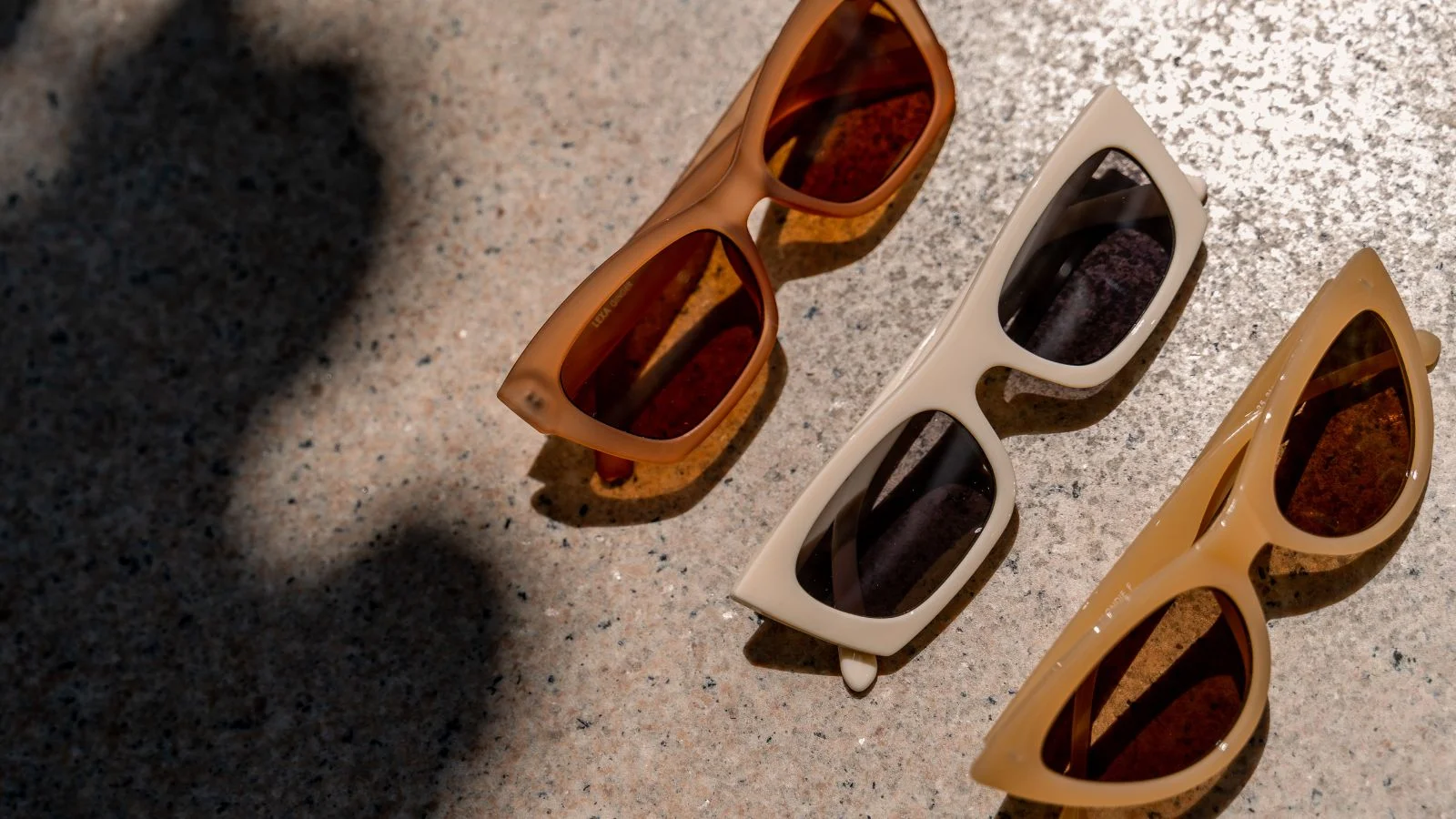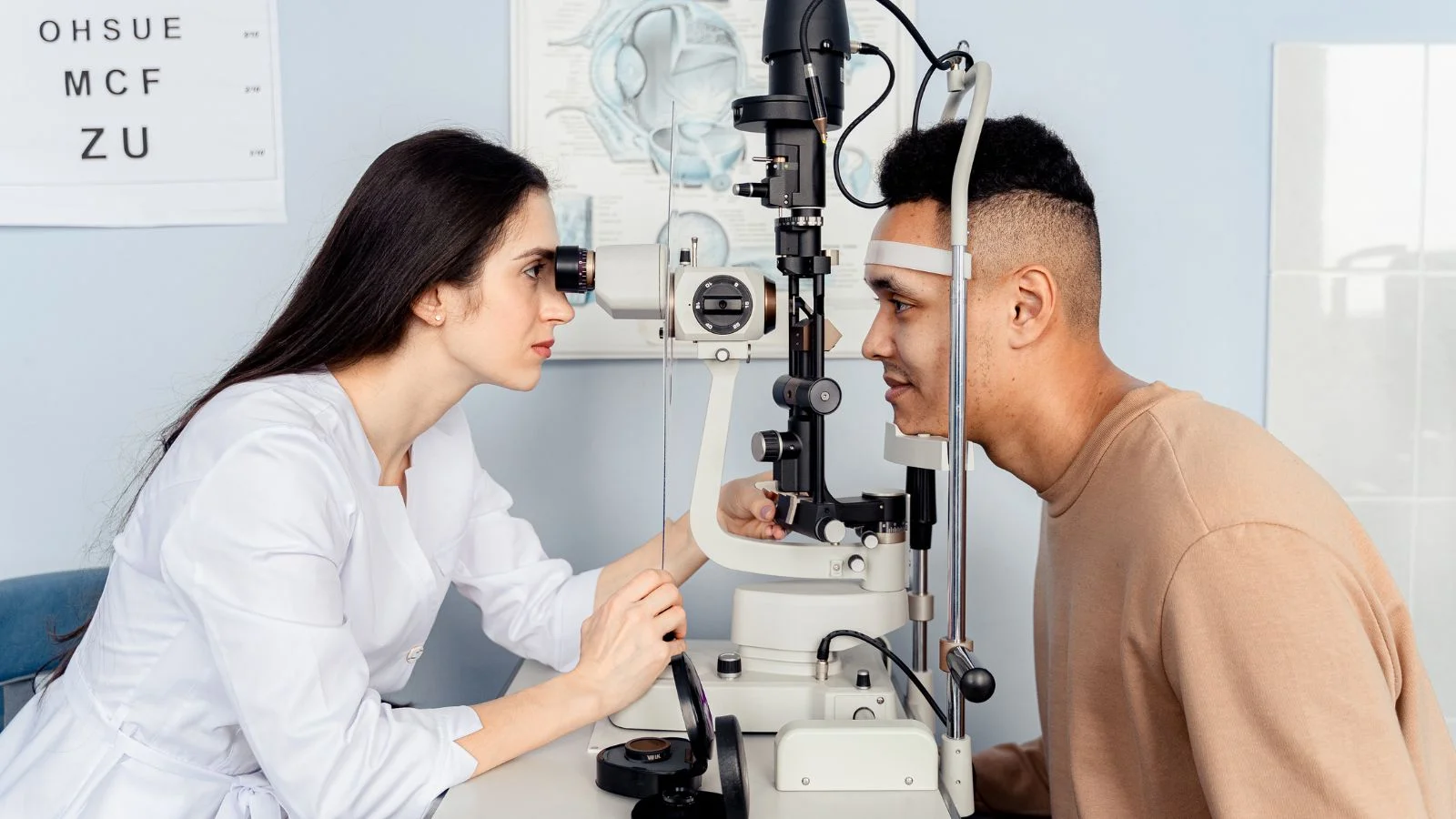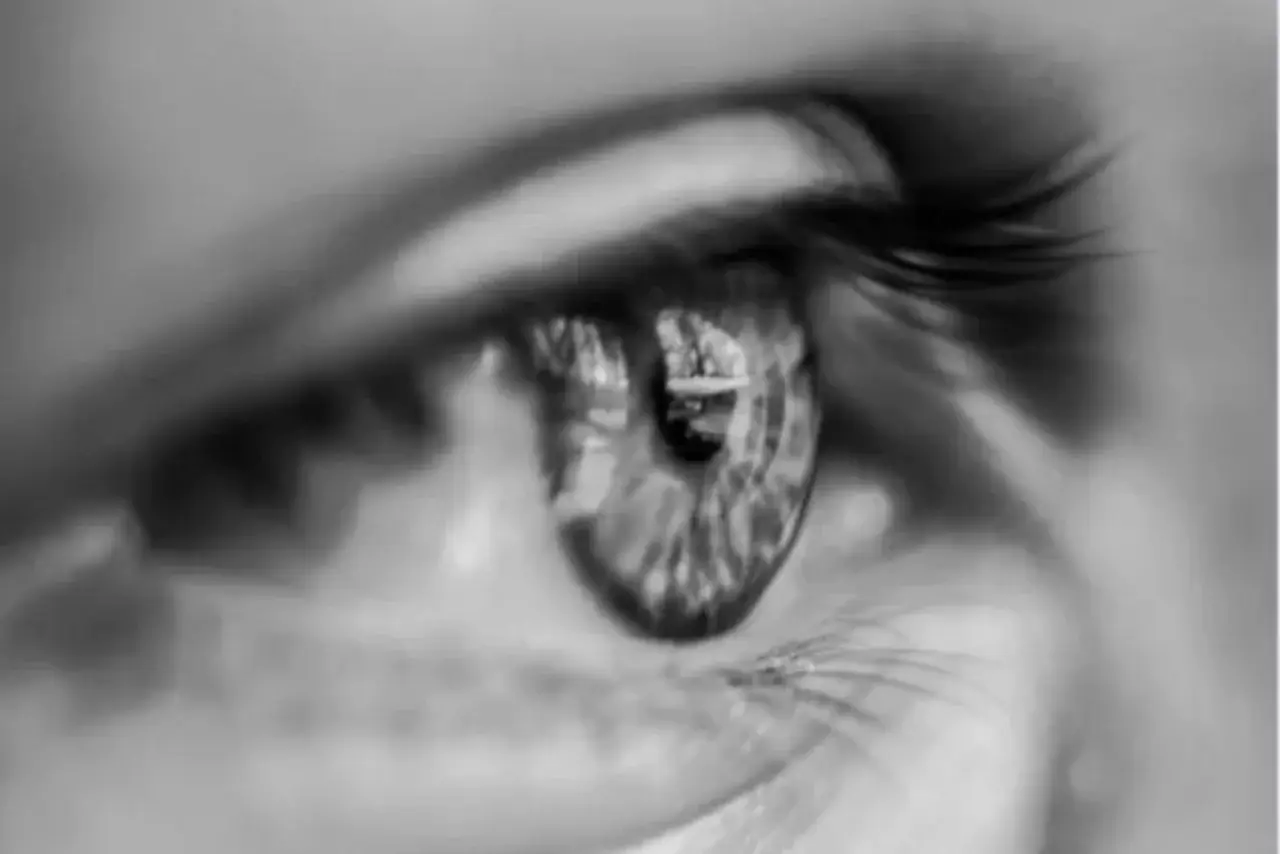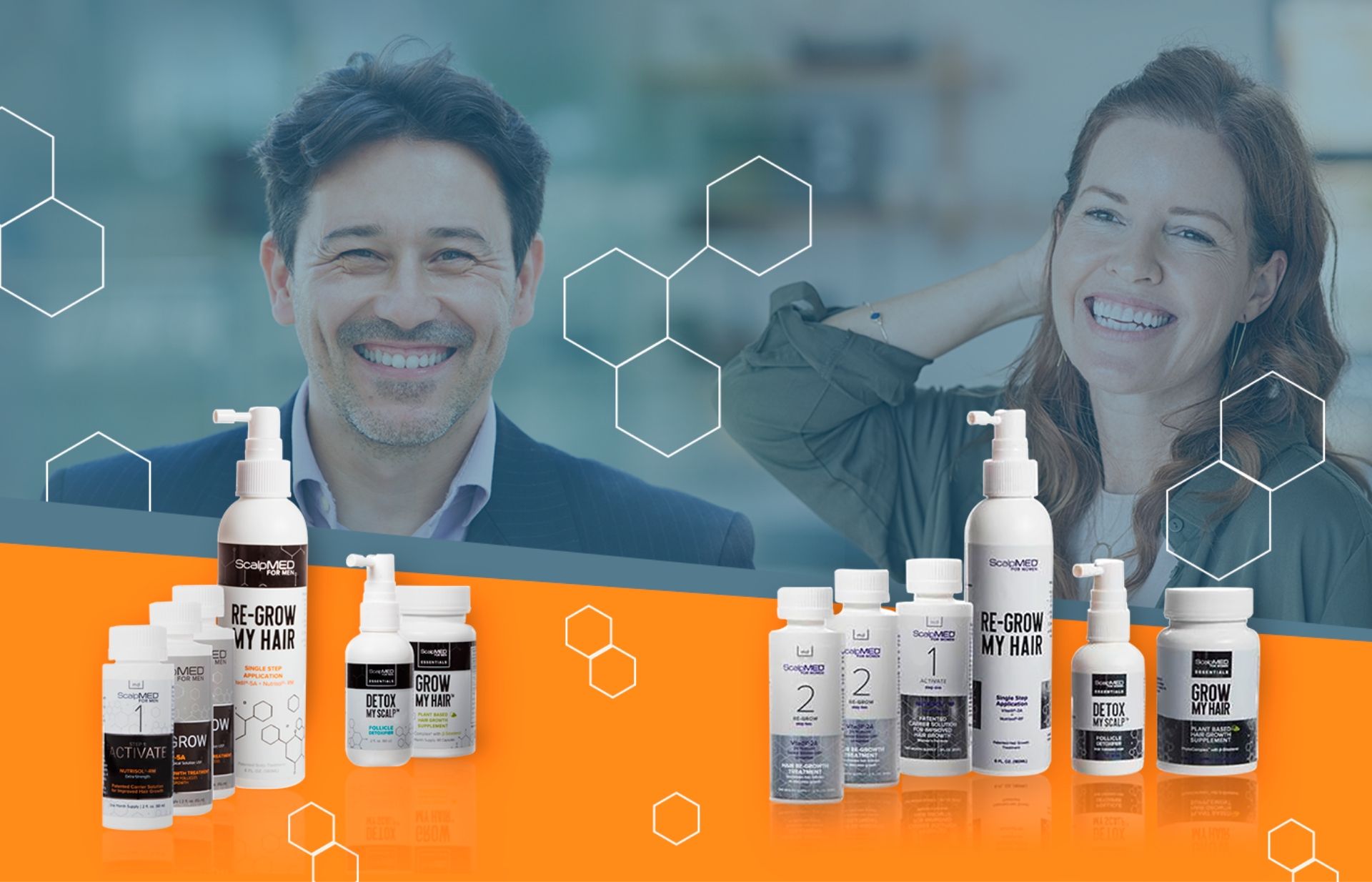Taking care of your eyesight is an important part of preserving your quality of life. It affects how you see and feel, and it can even improve your performance at work or school. If your eyesight is not healthy, you may experience headaches, fatigue, and other discomforts. This can be very debilitating.
Following good eye care habits is important for maintaining optimal eye health. There are many reasons to care for your eyes, including age, genetics, and lifestyle. Optimal eye health is essential for good vision and preventing disease.
This blog post delves into crucial practices for optimal eye health, exploring the intersection of age, genetics, and lifestyle factors. Discover the key strategies that contribute to clear vision and disease prevention, ensuring your eyes remain a vital asset throughout your life journey.
This post contains affiliate links. Please read our disclosure.
1. Fueling Your Vision: A Healthy Diet for Optimal Eye Health

To keep your eyes healthy, think of food as their fuel. Eating the right stuff is like giving them superpowers. So, how can you make sure your eyes stay strong and see well?
Well, it’s pretty simple. You need to eat lots of colorful fruits and veggies. These foods are like superheroes for your eyes. They have special things called lutein and zeaxanthin that protect your eyes’ important parts. So, munch on leafy greens like spinach and kale, and you’re not just eating healthy, you’re giving your eyes a boost!
Another hero for your eyes is something called omega-3 fatty acids. They’re like shields that protect your eyes, and you can find them in foods like fish. By eating these good foods, you’re not only helping your eyes stay strong, but you’re also reducing the chances of getting eye problems when you’re older. It’s like feeding your eyes superpowers and keeping them in great shape!
2. Optimize the 20/20-20 rule to get 20/20 Vision

You may have heard of the 20-20-20 rule. You need to stop working on your computer for at least 20 minutes every 20 minutes to let your eyes rest. This breaks up the focus on your screen and allows the muscles of the eye to relax. Taking a break from your computer every 20 minutes can be as simple as taking a walk or stretching, or even using your phone’s timer. But it will be best if you do this regularly, such as once or twice a day.
To prevent eye strain, take regular breaks. A 30-minute break is a good idea for people who spend long hours on their computer. In addition to reducing eye strain, taking regular breaks will help the eyes stay fresh. If you’re working long hours, take a break every 30 minutes. You may even want to consider putting your phone on airplane mode so you won’t be looking at it for too long. You’ll be surprised how much better you’ll feel.
Try taking 20-second breaks to look out the window or at something else nearby. A lamppost or tree is an excellent place to rest your eyes. Aside from that, try to close your eyes for 20 seconds every twenty minutes. This will help your eyes relax and prevent dry eye. Besides, keep your phone out of your reach. Your eyes will thank you! And if you’re working long hours, try to avoid using your computer as much as possible.
3. Get plenty of fresh air but avoid dry air, and drink plenty of water to hydrate your eyes

For optimal eye health, try to get as much fresh air as possible. This is especially true for people who live in a climate where dry air is prevalent. Despite what you may think, it’s a good idea to keep your eyes moist as much as possible, since they are particularly sensitive to this condition. A humidifier is a great way to do this. It adds tiny drops of water to the atmosphere, which can make a huge difference to the eyes.
Be sure as well to get plenty of fresh air every day. It’s important to drink plenty of water to hydrate your eyes, and to avoid too much caffeine. Instead, opt for herbal teas and fruit-infused water, such as orange juice. You can also eat foods that are rich in fluids like apples, tomatoes, and green leafy vegetables. Warm compresses can relieve dry eyes by reducing inflammation. Ideally, you should use these at least twice a day.
Aside from drinking plenty of water, it’s also important to avoid irritants that cause dryness and irritation in the eyes, such as smoke and wind. Also, avoid using hair dryers and air conditioners, as they can aggravate dryness. Likewise, you should avoid smoking or being around people who smoke. Finally, you should get regular eye exams. If you don’t have to wear glasses, consider wearing wrap-around sunglasses.
4. Wear sunglasses when outside

Almost 90 percent of people understand the importance of wearing eye protection, but they often neglect it when they go outside. Many only wear them for fashion, while others opt to use them to block the harsh glare. Wearing sunglasses is a great habit to adopt. The rays from the sun are getting stronger and more intense. It is important to protect your eyes, and wearing a pair of sunglasses will help you keep them protected.
The sun gives off UV rays, and while this is helpful for the body because it boosts vitamin D, too much exposure can damage the eye. It is vital to wear glasses that block up to 100% of UVA and UVB rays. Not only will wearing sunglasses help prevent sunburn, they will also protect your eyes from harmful UV rays. Furthermore, it is important to wear glasses during winter months, as the sunlight is lower in the sky but is just as strong. Using sunglasses during winter can help you keep your eyes healthy and avoid damaging conditions such as cataracts and pterygia.
It is essential to wear sunglasses when outdoors. The sun’s rays can be very harsh on the eyes. Make sure to choose the right pair of eyeglasses to protect your vision. The best way to find the right sunglasses is to speak to an eye care professional. Purchasing high-quality glasses will help you avoid sun-related eye diseases. Using a high-quality pair of sunglasses can help prevent the onset of cataracts, macular degeneration, pinguecula, or pterygia, which are among the leading causes of blindness in the world.
5. Choosing Wisely: Stick to Premium Eye Makeup Products

Optimal eye health starts with choosing the right kind of makeup. It’s best to avoid blending too much and to choose shades that don’t irritate the skin. There are many brands of premium makeup, but you can easily find one that will work for you. Fortunately, these days, there are many options for eyeshadow sticks. You can even find one that’s shaped like an eye, so you won’t have to worry about losing the color.
If you love eye makeup, then it’s important to remove it properly. You’ll want to replace it at least every three months, since the makeup can cause bacterial infections. Be sure to look for the expiration date on your products, because makeup that isn’t fresh can still cause infection. If you use a product that thickens your eyelashes, check the ingredients before buying it. You can avoid using products that contain added color and ingredients that might irritate your eyes. These products should also contain no sodium lauryl sulfate, talc, or parabens.
If you use eye makeup that has expired, you should replace it right away. You should never use older products because they might contain bacteria or other infections. Keep in mind that the best time to purchase new eye makeup is when it’s a few months old. Another important tip is to buy eyelashes that are healthy and hydrated. Using mascara that’s too thick could lead to infections. If you have hooded eyes, this product is for you. It doesn’t transfer and creases, making it ideal for those who wear hooded eyes.
6. Vision Check: See Your Optometrist Frequently

Annual eye exams are necessary to maintain your good eye health. A comprehensive exam is the best way to detect any potential problems and catch them early. In addition to correcting your vision, your doctor can diagnose various eye conditions, including age-related macular degeneration, glaucoma, and other common eye diseases. These exams also look at the retina and macula, which are vital for maintaining clear vision.
Routine eye exams are an essential part of maintaining good eye health and correcting your vision. Routine checkups also help prevent the development of mild to severe eye diseases. While regular visits are recommended for all ages, those at risk for or suffering from eye disease are advised to get regular exams. This article will explain why regular visits are necessary. You may have glaucoma or another eye condition, which requires a visit to an ophthalmologist.
It’s also important to schedule routine eye exams for those who spend a lot of time outdoors. Even if you don’t need glasses, a routine exam can identify early signs of eye diseases such as glaucoma and retinal holes, which can lead to vision loss and even retinal detachment. Furthermore, an annual exam can detect a more serious condition, such as melanoma, which can lead to permanent vision loss.
7. Colorful Nutrition: Get Vitamins & Red Peppers for Your Eyes

Taking care of your eye health is as simple as embracing a rainbow of colorful fruits and vegetables into your diet. These vibrant foods are like a secret weapon for your eyes because they’re packed with essential nutrients like vitamin A, vitamin C, and carotenoids, which give them their beautiful hues. These nutrients act as a shield against a variety of eye diseases. Fruits and vegetables in shades of orange and yellow are particularly rich in vitamin C, while red peppers are standout sources of lutein.
The key lies in nourishing your body with antioxidants. Vitamin C plays a crucial role in protecting your body’s cells from free radicals, which can harm healthy tissues and potentially lead to conditions like age-related macular degeneration and cataracts. Boosting your levels of vitamin C and E is as easy as incorporating certain foods into your diet. Berries and nuts, such as almonds and sunflower seeds, are brimming with antioxidants that serve as your eye’s guardians, warding off oxidative damage and ensuring your vision remains sharp.
It’s like building a colorful and protective fortress for your eyes through your diet, one rich in eye-boosting nutrients and antioxidants. These nutritional choices fortify your vision and act as a line of defense against potential eye issues, creating a culinary strategy that supports your long-term ocular health. So, envision your meals as an opportunity to equip your eyes with a superhero diet, shielding them from harm and preserving their clarity.
8. Shielding from Screens: Protect Your Eyes from Digital Screens

In today’s digital age, we spend a significant amount of time in front of screens, whether it’s our computer at work, our smartphone, or watching TV. Prolonged screen time can lead to digital eye strain, also known as computer vision syndrome. To protect your eyes from digital screens and maintain good eye health, consider the following tips:
- Adjust the screen: Make sure your computer screen is at eye level and about 20 inches away from your eyes to reduce strain.
- Follow the 20-20-20 rule: Just like we mentioned earlier, take a 20-second break to look at something 20 feet away every 20 minutes of screen time.
- Use bluelight filters: Consider using blue light filters on your devices to reduce the amount of blue light exposure, which can disrupt your sleep patterns and cause eye strain.
- Blink frequently: Remember to blink often while looking at screens to keep your eyes moist and reduce dryness.
Incorporating these practices into your daily routine can help protect your eyes from the negative effects of prolonged screen time.
Conclusion: Safeguarding Your Windows to the World
Incorporating these natural eye care tips into your daily routine can go a long way in maintaining optimal eye health. Your eyes are precious, and taking good care of them is essential to ensure clear vision and prevent eye diseases. A healthy diet, regular breaks, fresh air, proper makeup habits, sunglasses, routine eye exams, and colorful fruits and vegetables are all important components of a comprehensive eye care regimen. Your eyes are your windows to the world, so take good care of them, and they’ll continue to serve you well for a lifetime.
Disclaimer: The information provided in this blog post is for informational purposes only and should not be considered a substitute for professional medical advice. I am not a physician, and the content here is based on research and personal experience. It’s essential to consult with a qualified healthcare professional for personalized guidance on eye health or any medical concerns. Always seek the advice of your eye doctor or another qualified healthcare provider regarding any questions you may have about a medical condition.




